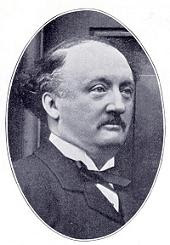 Even here you cannot escape the Royal Wedding Mania that has infected much of the world for the last few weeks. Today the music that will be sung and played during tomorrow's service at Westminster Abbey was announced to the media.
Even here you cannot escape the Royal Wedding Mania that has infected much of the world for the last few weeks. Today the music that will be sung and played during tomorrow's service at Westminster Abbey was announced to the media.However, the broader and more long-range importance of the wedding music chosen by Kate and Wills will be understood by church musicians everywhere, because brides will want some of the same selections for their own ceremonies this summer and for years to come. The Prince of Denmark's March by Jeremiah Clarke became the fashionable processional after its appearance at the 1981 wedding of Charles and Diana. Somehow I do not see I was glad, an anthem by C.H.H. Parry, and tomorrow's processional, becoming equally popular (how many weddings today have a choir?), but the Fantasia on 'Greensleeves' of Ralph Vaughan Williams might be heard more often.
(That said, I will be singing in a wedding this Saturday, but the musical couple are two section leaders of our church choir, and the groom has composed the music for the Anglican chant to which we will sing the psalm. But I doubt they would have chosen I was glad for their processional, either, even if they had known about this.)
So tomorrow's hymns, like the rest of the music, will be British.
Guide me, O thou great Redeemer is assumed to be a tribute to Diana, at whose funeral it was sung.
Love divine, all loves excelling will be sung to BLAENWERN, as it often is in the UK and rarely is in the US.
Jerusalem (And did those feet in ancient times), also composed by Parry, is one of those songs that the British consider a hymn, but not everyone else does. (The corresponding "hymn" at Charles and Diana's wedding was I vow to thee, my country).
You could dismiss the hymn selections as no more than interesting trivia (like the fact that the other hymn in the 1981 royal wedding was Christ is made the sure foundation) but remember that they will be heard tomorrow by millions of people around the world. Some may even be singing along.



